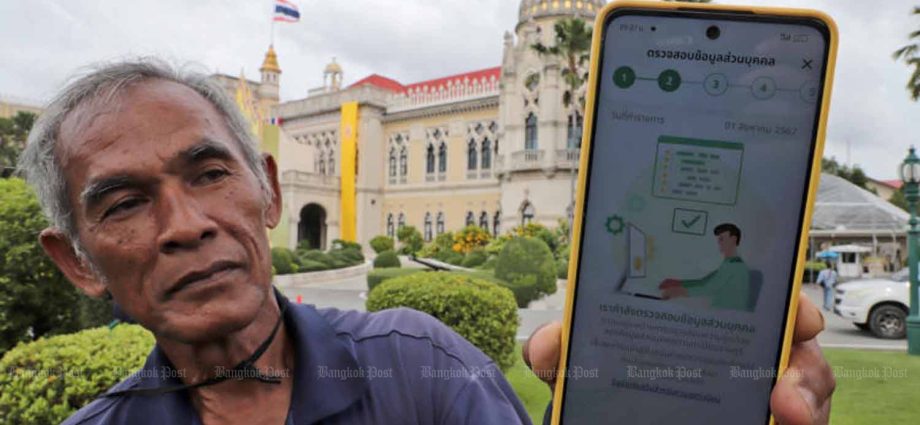More than 10 million attempt to sign up for digital wallet via government’s Thang Rath app

The Thai government’s flagship 10,000-baht handout stimulus suffered an early setback on Thursday when millions rushed to sign up on the opening day and overloaded the registration system.
By early afternoon, 10.5 million people had applied to join the scheme via Thang Rath app, which the government developed to help people access dozens of services.
However, millions more could not access the registration portal, with many complaining they did not receive text message passcodes to complete the process.
“It’s normal to have problems on the first day, but we are doing our best,” said Prime Minister Srettha Thavisin, the programme’s biggest advocate.
Deputy Finance Minister Julapun Amornvivat predicted earlier that at least 5 million people would sign up on Thursday.
Some glitches were reported as soon as registration started at 8am, possibly because subscribers’ phones were old or their internet connection was weak, said Mr Julapun.
Each subscriber took from two to five minutes to finish the process, he said.
About 2.3 million people registered for the digital wallet via Thang Rath in the first hour.
Subscriptions for smartphone owners will be open until Sept 15. People who do not have smartphones can register using their ID cards starting on Sept 16.
The 450-billion-baht digital wallet is the flagship initiative of the coalition-core Pheu Thai Party, aimed at stimulating an economy struggling from high household debt and weak spending.
The distribution of the funds is scheduled to start in early October. It was originally expected to begin in February, and then was put back to May because of questions about how the handout would be funded.
Critics, including respected economists and some former central bank governors, have complained the scheme was short-sighted and fiscally risky, which the government rejects.
The House of Representatives late on Wednesday approved an additional 122 billion baht for the 2024 fiscal year to help fund the handout, but Senate and royal endorsement is still required.
Eligibility rules
As many as 50 million Thai nationals aged 16 and up are eligible for the programme, but officials expect that about 45 million will sign up. In order to be eligible, individuals must be Thai citizens with an income (based on personal income tax filings) not exceeding 70,000 baht per month or 840,000 baht per year.
Recipients can spend the money within the districts listed on their ID cards within six months. Eligible recipients will be allowed to move their house registration to the districts where their workplace is located before they register if they can spend the digital money without having to return to their home province.
Mr Julapun warned people not to make any exchange for cash with any party because that would be illegal.
The funds are meant to be spent at small businesses, including convenience stores. However, owners of shops that receive digital money can spend it outside their districts.
Millions of retailers are expected to apply and join the scheme, from major malls and supermarket chains to noodle vendors and family-run convenience stores.
Pheu Thai is counting on the multiplier effect of the handout to fire up consumption, revive manufacturing and spur more investments. Mr Srettha has predicted a “whirlwind” impact on the economy.
Authorities expect the stimulus to help lift Thailand’s growth rate by as much as 1.8 percentage points — a big jump for an economy that has expanded at a pace of less than 2% on average in the past decade.
The Bank of Thailand, however, sees a more modest contribution of 0.9 percentage points to gross domestic product for the whole programme.

